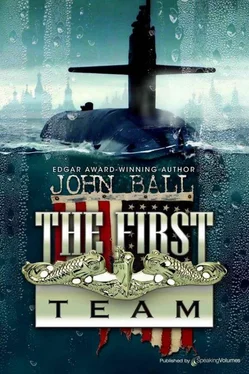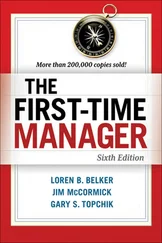Джон Болл - The First Team
Здесь есть возможность читать онлайн «Джон Болл - The First Team» весь текст электронной книги совершенно бесплатно (целиком полную версию без сокращений). В некоторых случаях можно слушать аудио, скачать через торрент в формате fb2 и присутствует краткое содержание. Год выпуска: 2013, Жанр: Триллер, на английском языке. Описание произведения, (предисловие) а так же отзывы посетителей доступны на портале библиотеки ЛибКат.
- Название:The First Team
- Автор:
- Жанр:
- Год:2013
- ISBN:нет данных
- Рейтинг книги:5 / 5. Голосов: 1
-
Избранное:Добавить в избранное
- Отзывы:
-
Ваша оценка:
- 100
- 1
- 2
- 3
- 4
- 5
The First Team: краткое содержание, описание и аннотация
Предлагаем к чтению аннотацию, описание, краткое содержание или предисловие (зависит от того, что написал сам автор книги «The First Team»). Если вы не нашли необходимую информацию о книге — напишите в комментариях, мы постараемся отыскать её.
Student protesters are being slaughtered in the Midwest.
The Jewish pogroms have begun.
You are now living in Soviet — occupied America!
One nuclear submarine and a handful of determined patriots against the combined might of Russia and Soviet-occupied America… The Most Explosive and Gripping “What If” Novel of Our Time!
First published January 1971
The First Team — читать онлайн бесплатно полную книгу (весь текст) целиком
Ниже представлен текст книги, разбитый по страницам. Система сохранения места последней прочитанной страницы, позволяет с удобством читать онлайн бесплатно книгу «The First Team», без необходимости каждый раз заново искать на чём Вы остановились. Поставьте закладку, и сможете в любой момент перейти на страницу, на которой закончили чтение.
Интервал:
Закладка:
He could not dispute that evidence, but for the moment he remained unconvinced. “We came on a boat,” he said.
“Yes, daddy, and you were seasick most of the time, remember?”
“Besides,” Morris added, “they don’t have boats like that any more. Only very fancy ones for the rich, with lots of expensive servants.”
“The meals on the airplane are all free,” Moshe contributed. “You pay your fare and that’s it. That’s one reason the railroads went broke hauling passengers — too much for meals and too many tips.”
At last the things they had been telling him began to penetrate into old Ishmael’s consciousness. He sat up a little straighter and looked around the barren room in which he had lived for more than ten years. He saw its bleakness and the four walls which had shut him in for so long from an alien world he had refused to accept.
Then the first germ of a long dormant anticipation stirred deep within him. “Palestine,” he said, addressing no one.
Morris nodded; he had read the symptoms. “Daddy, we’re going home,” he said.
Esther was a little startled; for the first time in her memory she saw a tear form in her father’s eye; she rushed to embrace him so that they might share their joy together.
The Senate Office Building was curiously quiet. Technically Congress was still in session, but the President was not available to sign legislation, which would have been largely meaningless in any event. Some senators and congressmen made it a point to stay on the job, but they were largely standing by awaiting whatever future developments might come.
It was a little like walking through an elaborate play set, Hewlitt thought, as he went down the corridor toward Senator Fitzhugh’s office. All of the fixtures of reality were there, but it was now nothing but an elaborate fagade. Someday, perhaps, it would again be a center of genuine policy making, but that future time was not visible now.
Hewlitt was not happy about his errand, but he almost welcomed it as a change from the inaction which had been forced upon him. He had joined the underground to do something; now he was under strict injunction to look and listen, but to do no more until he was directed. This kind of passive role did not agree with him: it was too much like the casual life he had been living prior to the sudden outbreak of hostilities and their almost unbelievably swift result. He felt much more sure of himself now, and he wanted to put his powers to the test. The job which confronted him at the moment might be a measure of his diplomacy, but little more.
He found the door that he wanted, opened it, and discovered that the senator’s receptionist was still on the job. “Are you Mr. Hewlitt?” she asked as he approached her desk.
“Yes, I am.”
“Please sit down; the senator will be with you in a few minutes.”
Hewlitt sat and looked through a newspaper; it was close to meaningless. Censorship had closed over all of the news media and what filtered through was almost entirely devoid of interest. The receptionist waited until he had laid the thin paper aside and then offered a morsel for his consumption. “I don’t know if you’ve heard,” she said, “but the Brown hearings are off.”
“I’ve heard.”
“Seymour Brown was in here just a little while ago,” the girl went on. “He told the senator that the Air Force simply didn’t know how to fly the Ramrod, and that that was all that was wrong.”
“I don’t believe it,” Hewlitt retorted. “In the first place, the Air Force can fly anything that can be flown. Secondly, if the airplane can’t be handled by the average, properly qualified combat pilot, then it’s the plane’s fault, period.”
“I think you’re right about that,” the girl agreed. She looked at her intercom where a light had just come on. “You may go in now,” she said.
Senator Solomon Fitzhugh was almost exactly as Hewlitt had expected to find him; he was older-looking than his pictures suggested, but his familiar features were unmistakable. His manner was a bit weighty as he rose to shake hands; the government might have fallen, but Senator Fitzhugh clearly had decided not to join in the debacle. He was a United States senator and that fact had not just been impressed on his mind, it had been molded there.
“Sit down, sir,” he invited, waving toward a chair. He used the word “sir” as a convenient tool with which to demonstrate his humility. It often greatly impressed casual visitors, particularly those from his home state, and he had learned its value. “Now tell me what I can do for you.”
“I didn’t come to ask anything of you, senator,” Hewlitt said. “Mr. Zalinsky has directed me to call on you personally to discuss a matter which should not be committed to paper.”
Fitzhugh nodded with understanding. “I take it that he would like to tender his regrets for his rudeness to me the other day. Please tell him that I consider the incident closed.”
“The matter, senator, is considerably graver than that.”
“I’m sorry. Suppose you go on.”
“All right, sir. With your permission I’ll come right to the point.” “One moment before you do: I don’t quite understand your role here. Are you representing Mr. Zalinsky?”
“Not by any desire of mine, sir. As I believe I told you on the phone, I’m a government language expert on the White House staff. When Zalinsky moved in he tapped me because I’m fluent in his language and his English is somewhat limited.”
“Is that why he declines to see anyone?”
“No, senator, that seems to be a policy with him.”
“Thank you for the explanation. Please go on.”
“I believe, sir, that not too long ago you wrote to the premier —”
Fitzhugh raised^a hand and stopped him before he could continue. “Of course, I understand now. I did write a highly confidential letter two or three weeks ago and I’ve been very anxiously awaiting a reply. In fact I have a couple of bags packed in the event I might have to leave on short notice for overseas.” His tone became a little more confidential. “You understand, of course, that if the President had been available…”
“Entirely, sir.”
“It may be,” Fitzhugh continued, “that the President, wherever he is, is already in communication with the premier. If you know this to be a fact, please tell me.” He looked up, the question framed in his eyes.
“I’m sorry,” Hewlitt answered. “I have no idea where the President is or what he is doing. In the past some traffic between the President and the premier did cross my desk, but now I’m entirely out of the picture.”
Senator Fitzhugh laid his arms on his desk and leaned forward. The lines in his face seemed to deepen and his voice reflected his concern. “Since you have been in that position,” he said, “you can be a great help to me now.” He looked at Hewlitt, almost pleading with him. “If you could give me — just a resume — of what went on just prior to the outbreak of the — the war. I have very urgent reasons for asking this of you.”
Hewlitt shook his head. “I’m genuinely sorry, senator. You understand that I could not reveal that to anyone without the President’s own authorization.”
The senator played another card. “Please consider the present circumstances. You realize, of course, that our… opponents… have full and complete knowledge of what I’m asking. I don’t want to have to aim in the dark.”
“I do understand, senator, as you appreciate my position. May I tell you, sir, why I’m here?”
Fitzhugh sat back, disappointed, but undefeated. “Very well, Mr. Hewlitt, please continue.”
“Senator, Mr. Zalinsky informed me just before I phoned you that your letter had been received and read. I profoundly regret to tell you this, sir, but it was not regarded with the gravity that it deserved. It is the premier’s position right now that we have been defeated and are not in a position to negotiate concerning anything. According to Mr. Zalinsky, he has no present intention of meeting with you or continuing a contact in any way. This may change later, of course, but as of right now I have the most unwelcome task of advising you that the premier wishes you to discontinue all contact.”
Читать дальшеИнтервал:
Закладка:
Похожие книги на «The First Team»
Представляем Вашему вниманию похожие книги на «The First Team» списком для выбора. Мы отобрали схожую по названию и смыслу литературу в надежде предоставить читателям больше вариантов отыскать новые, интересные, ещё непрочитанные произведения.
Обсуждение, отзывы о книге «The First Team» и просто собственные мнения читателей. Оставьте ваши комментарии, напишите, что Вы думаете о произведении, его смысле или главных героях. Укажите что конкретно понравилось, а что нет, и почему Вы так считаете.












